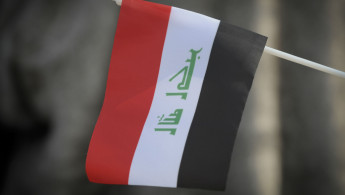IS attacks kill 25 civilians, troops in northern Iraq
At least 25 civilians and members of government forces have been killed in northern Iraq since late Sunday in attacks by the Islamic State group, officials said.
The attacks came despite Baghdad's declaration of victory over the militant group late last year and as the country gears up for parliamentary elections.
"Islamic State (IS) terrorists who had set up a fake roadblock on a major road have killed 15 people," a police officer told AFP.
That attack took place on the outskirts of Amerli in the province of Kirkuk, about 200 kilometres (125 miles) from Baghdad.
In a separate attack, three people were killed while driving a car further north near the city of Daquq, said the officer, who spoke on condition of anonymity.
"The attackers then burned the car," he said.
In a village of Nineveh province, seven others including the mayor were killed by armed men in military uniform, local official Ali al-Hamdi told AFP.
Hamdi blamed IS, saying members of the jihadist group were hiding out in the surrounding desert and making incursions into populated areas.
The mayor of Mushirfa village and two of his children were killed in the attack on his home, Hamdi said, as well as two tribal fighters of the Hashed al-Shaabi paramilitary units that played a leading role in the fight against IS.
In mid-February, IS claimed responsibility for killing 27 people in the Hawija area of Kirkuk province, also setting up a fake checkpoint and disguising themselves as soldiers.
It was the deadliest attack on Iraqi forces since they retook control last October of Hawija, the jihadists' last bastion in northern Iraq.
There was no immediate claim of responsibility for the latest attacks, but most such strikes in Iraq are the work of IS.
In December, Prime Minister Haider al-Abadi's government declared "the end of the war" against IS, announcing that government troops were in control of the long and porous Iraqi-Syrian border.
Experts and officials, however, believe that jihadists hiding out in the desert still have the ability to strike and even to seize areas of Iraq, especially near the Syrian border.
Analysts have warned that the group would increasingly turn to guerrilla-style attacks as it was pushed underground after losing territory.
The recent spate of attacks come as Iraq gears up for parliamentary elections set for May.
Abadi has said he will stand for re-election as the head of a new coalition, rather than running under the banner of his Shia Dawa party.
His new "Victory Alliance" coalition would be a "cross-sectarian" list aimed at overcoming divisions and battling inequalities in the country, the 65-year-old prime minister has said.





 Follow the Middle East's top stories in English at The New Arab on Google News
Follow the Middle East's top stories in English at The New Arab on Google News
![The UAE is widely suspected of arming the RSF militia [Getty]](/sites/default/files/styles/image_330x185/public/2024-11/GettyImages-472529908.jpg?h=69f2b9d0&itok=Yauw3YTG)
![Netanyahu furiously denounced the ICC [Getty]](/sites/default/files/styles/image_330x185/public/2024-11/GettyImages-2169352575.jpg?h=199d8c1f&itok=-vRiruf5)
![Both Hamas and the Palestinian Authority welcomed the ICC arrest warrants [Getty]](/sites/default/files/styles/image_330x185/public/2024-11/GettyImages-2178351173.jpg?h=199d8c1f&itok=TV858iVg)